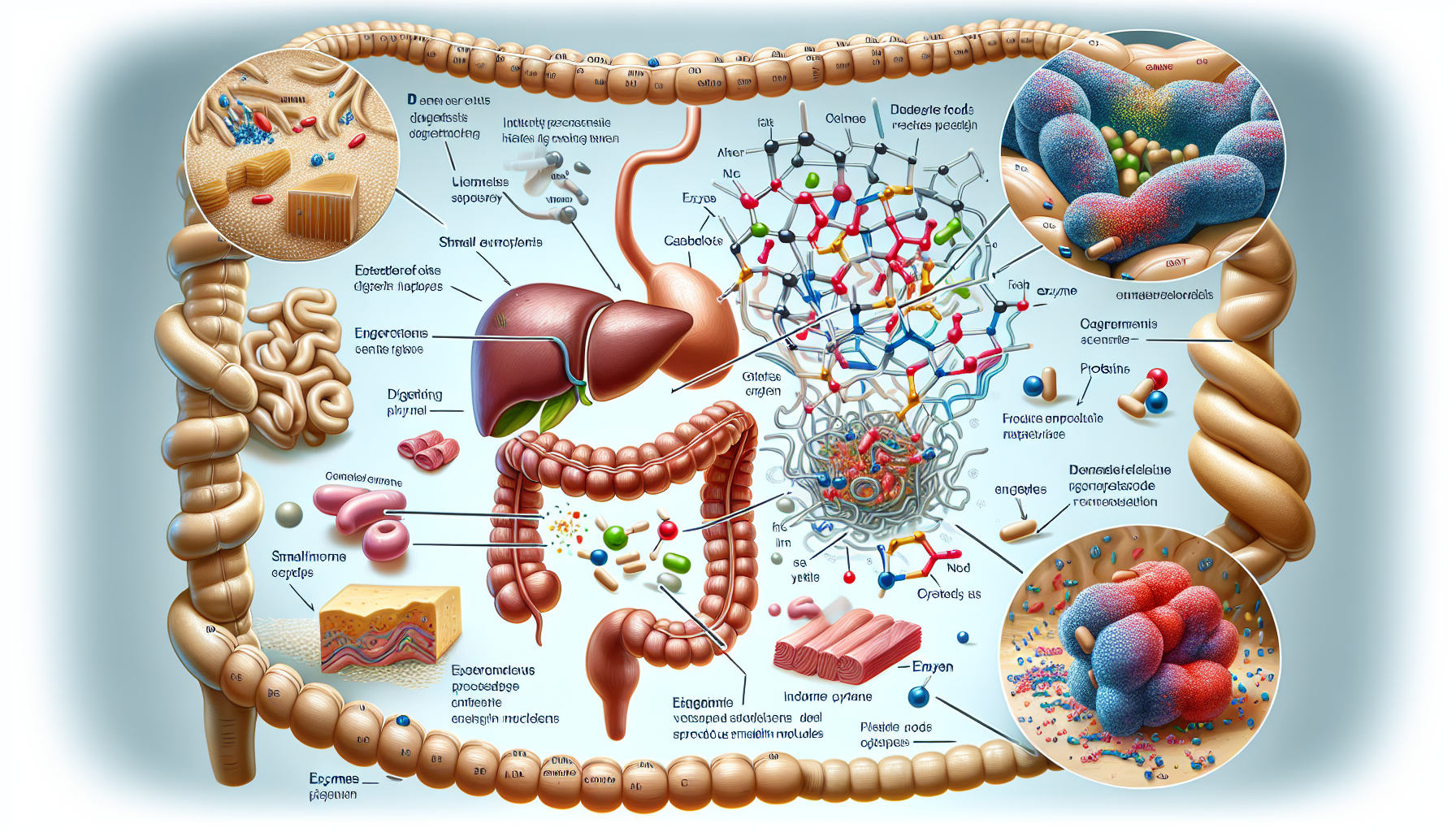In the quest for optimal health, the digestive system plays a vital role as the cornerstone of wellness. It is where nutrients are absorbed, waste is processed, and a significant part of our immune system resides. With the modern diet often lacking in essential nutrients and our lives filled with stress, it’s not surprising that digestive health issues are on the rise. Fortunately, the use of natural enzymes offers a promising avenue to support and enhance digestive health.
The Role of Enzymes in Digestion
Enzymes are biological catalysts that speed up chemical reactions in the body. In the digestive system, they are crucial for breaking down food into its constituent nutrients, which our bodies can then absorb. There are several types of enzymes, each targeting different kinds of molecules such as proteins, carbohydrates, and fats.
Proteases for Protein Digestion
Proteases break down proteins into amino acids. Without sufficient protease activity, the body may struggle to digest protein-rich foods, leading to symptoms like bloating, gas, and discomfort.
Lipases for Fat Digestion
Lipases are enzymes that target fats, breaking them down into fatty acids and glycerol. These enzymes are essential for the digestion of dietary fats and the absorption of fat-soluble vitamins.
Amylases for Carbohydrate Digestion
Amylases focus on carbohydrates, breaking complex sugars into simple sugars. Carbohydrate digestion begins in the mouth with salivary amylase and continues in the small intestine with pancreatic amylase.
The Impact of Enzyme Deficiency
Inadequate enzyme production can lead to malabsorption and a plethora of digestive issues. Factors contributing to enzyme deficiency include aging, chronic stress, and certain health conditions. A deficiency in digestive enzymes can result in symptoms such as bloating, gas, diarrhea, and nutritional deficiencies. For more insight into the effects of chronic stress on gut health, consider reading Analyzing the Effects of Stress on Gut Microbiota.
Enhancing Digestive Health with Natural Enzymes
Supplementing with natural enzymes can be an effective strategy to improve digestion and nutrient absorption. Natural enzyme supplements typically contain a mix of proteases, lipases, and amylases, and may include other specialized enzymes like lactase for digesting lactose, the sugar found in milk.
Sources of Natural Enzymes
Natural enzymes can be found in certain foods and supplements:
- Pineapples: Contain bromelain, a protease that can aid in the digestion of protein.
- Papayas: Rich in papain, another protease that helps break down proteins.
- Honey: Especially raw honey, contains various enzymes that can assist in the digestion of carbohydrates.
- Kefir and Yogurt: These fermented dairy products provide a range of enzymes, including lactase, which helps digest lactose.
- Sauerkraut: Fermented cabbage is not only a source of enzymes but also probiotics.
Choosing Quality Enzyme Supplements
When selecting an enzyme supplement, it’s important to look for a high-quality product that specifies the activity level of the enzymes. This information is often measured in units such as FCC (Food Chemical Codex) and indicates the potency of the enzymes.
For a deeper understanding of how to balance gut flora, you might find it beneficial to explore Advances in Probiotic Therapy for Digestive Disorders.
Integrating Enzymes into a Healthy Lifestyle
While supplementing with enzymes can be helpful, it’s also crucial to adopt a diet and lifestyle conducive to digestive health. This includes:
- Eating a Balanced Diet: A diet rich in fruits, vegetables, lean proteins, and whole grains ensures a broad spectrum of natural enzymes and nutrients.
- Staying Hydrated: Adequate water intake is essential for the digestive system to function properly.
- Managing Stress: High stress levels can negatively impact digestion, so incorporating stress-reducing practices like meditation or yoga is beneficial.
For a comprehensive approach to dietary choices and digestive health, consider reading Assessing the Impact of Vegetarian Diets on Digestive Health.
The Connection Between Digestive and Overall Health
Digestive health is intrinsically linked to other aspects of wellness. For instance, a well-functioning digestive system is crucial for proper immune function, nutrient absorption, and even mental health. To learn more about the gut-brain connection, check out Assessing the Health of the Gut-Brain Axis.
Moreover, digestive health is closely tied to digestive health, which covers a wider spectrum of information and resources that can help you understand and improve your gastrointestinal wellness.
External Resources to Explore
To further support the points made in this article, here are some niche, specific resources worth exploring:
- A scientific review on the efficacy of enzyme supplementation found in the Journal of Digestive Diseases.
- An in-depth article on the impact of diet on enzyme production in the American Journal of Clinical Nutrition.
- Research on the relationship between digestive enzymes and gut health published by the National Institute of Diabetes and Digestive and Kidney Diseases.
Final Thoughts
Enhancing digestive health with natural enzymes is a promising approach to managing digestive discomfort and improving overall well-being. By understanding the role of enzymes, addressing deficiencies, and integrating enzyme-rich foods and supplements into your diet, you can support your digestive system and unlock the path to better health.
Remember, while supplements can offer a valuable boost, they should complement a healthy lifestyle and not replace a balanced diet. Always consult with a healthcare professional before starting any new supplement regimen, particularly if you have existing health conditions or concerns.
Embarking on a journey to enhance digestive health with natural enzymes is a step towards a more vibrant and energetic life. By nurturing your digestive system, you’re not only improving your gut health but also laying the foundation for a healthier, happier you.



